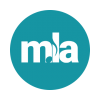RDA Around the World Pre-Conference, 2024 ALA Annual Meeting
June 28th, 2024
Submitted by Chelsea Hoover, Chair, Content Standards Subcommittee
In this presentation, international members of the RDA Board discussed the impact of RDA on their cataloging and metadata practices and how their regions have been addressing the obstacles and challenges of implementing Official RDA. Distinguished speakers in this presentation included Renate Behrens (the current RDA Steering Committee chair), Christian Aliverti (Europe), Judith Cannan (North America), Julia Hickie (Oceania), Hui Ling (Asia), Rania Osman (Africa), and Ángela Quiroz (Latin America and the Caribbean region).
Renate Behrens opened the presentation by discussing why RDA had become an international cataloging standard, noting that because different standards were needed for various user communities, it was imperative that all the cataloging standards were compatible and followed the same cataloging models and principles. She added that the Community Resources section in the Official RDA Toolkit exists to allow various user communities the opportunity to contribute their own application profiles (i.e. cataloging guidance materials such as metadata guidance documents) but also to exchange ideas with other cataloging communities and find common solutions, which would in turn help make RDA more international. Renate closed her portion of the presentation by emphasizing that more cooperation with other cataloging bodies was essential for compatibility of standards and that support of community-based application profiles would continue.
Next, the speakers from each region discussed the various challenges they have encountered in implementing Official RDA in their regions. These were some of the challenges the speakers cited:
In Africa:
- lack of funds to subscribe to the RDA Toolkit
- poor Internet bandwidth
- lack of training on the use of the RDA Toolkit
- shortage of professional staff
- some libraries still operate with the manual card catalogue
- challenge of translating RDA into Arabic, particularly as it pertains to maintaining consistent terms across different RDA files
- lack of established, standardized cataloging practices in the Arab-region libraries
In Asia:
- need for more training on how to use the Toolkit
- uncertainty about whether RDA can help improve search and discovery
- lack of expertise
- high cost of subscribing to RDA
- incompatibility of RDA standards in some countries with collections or local cataloging practices
- lack of cataloging staff
- many geographically diverse regions with various languages
- no common platform or network within the region to communicate
In Latin America and the Caribbean:
- lack of consultation and training tools
- high subscription costs
- lack of personnel with adequate knowledge
- Spanish translation is missing from the Official RDA Toolkit and therefore hinders the ability of Latin American catalogers to be able to effectively review it
- Official RDA Toolkit is difficult to navigate
In Europe:
- Many countries have more than one official language at the national or regional level, which can make the establishment of preferred names in authorized access points challenging
Despite these challenges, the speakers noted that they are working diligently to address these issues. Christian Aliverti noted that for languages in the German-speaking regions, the Official Toolkit has been partially translated. In Latin America and the Caribbean regions, Ángela Quiroz mentioned that there are several national working groups that are translating the Official RDA Toolkit into Spanish, while Hui Ling indicated that the Asia region intends to establish a common platform to allow for more effective networking and communication of RDA cataloging standards and policies among other Asian countries.
Meanwhile some regions, such as North America and Oceania, are more fully embracing Official RDA. Julia Hickie noted that implementation of Official RDA is set to begin at the National Library of New Zealand in August, with further work towards implementation schedules underway elsewhere in the region. In North America, Judith Cannan of the Library of Congress indicated that the institutions in the United States that are part of the Program for Cooperative Cataloging (PCC) have been embracing Official RDA and that some PCC institutions may start moving towards Official RDA by the end of this year. Judith noted that the Library of Congress plans to start implementing Official RDA by October of 2026 but also added that other libraries do not necessarily need to wait until Library of Congress has implemented Official RDA to start testing and implementing Official RDA. Judith emphasized that the firmer timeline of fully migrating to Official RDA by March 2027 is approaching and that all PCC institutions will need to have migrated to Official RDA by then to be able to code their NACO, SACO, and BIBCO records as PCC.
The presentation concluded with general consensus that much work still needs to be done in preparation for the migration to Official RDA.
